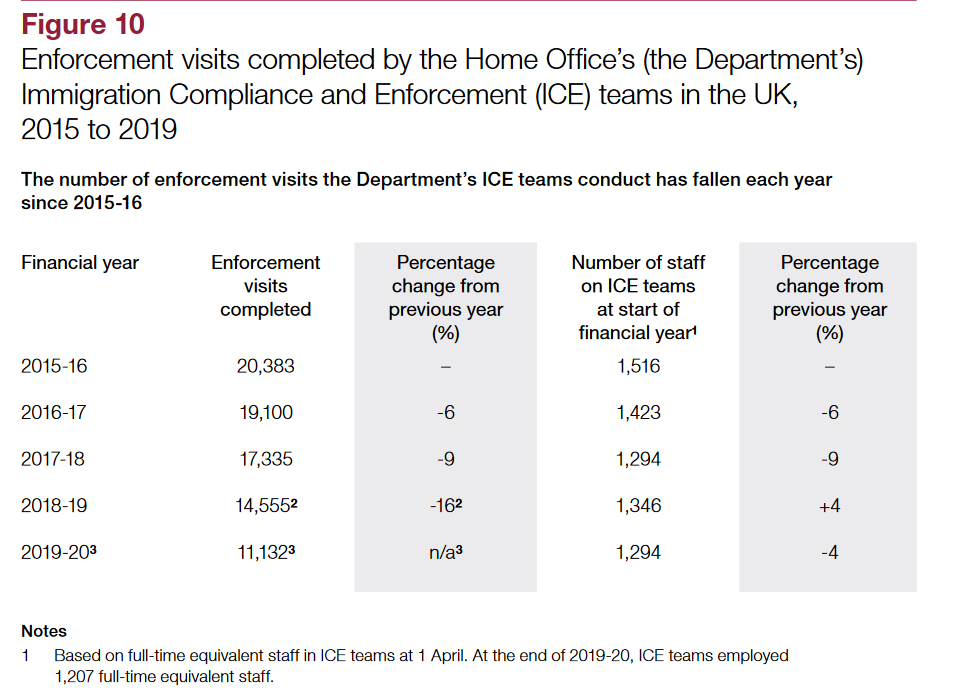New Freedom of Information data revealed that, between 2015 and 2019, there were 44,415 raids on private homes and on care homes thought to be employing illegal workers, resulting in just 7,578 people being removed (see media report).
Only 17% of enforcement raids led to removal.
These enforcement visits appear to be just a portion of the approximately 82,500 enforcement visits completed by the Home Office’s Immigration Compliance and Enforcement (ICE) teams in the UK between 2015 and 2019. The other portion may be on businesses thought to be employing illegal workers.
However, it is absurd to suggest – as parts of the ‘open borders industry’ have – that enforcement visits should stop (and sanctions against illegal immigration should be repealed) because there is only a tiny share of removals following on from enforcement visits.
Of course not all of those encountered in enforcement visits will then be subject to removal since a large number will go on to claim asylum and may receive a grant of refugee status. Indeed, nearly a fifth (17%) of 84,000 encountered by immigration staff in the period 2005-14 (amounting to 13,900) went on to be granted asylum (see full figures in Parliamentary Answer).
The more important point to make, however, is that there has been an increasing failure of follow-through on enforcement by the Home Office for which top politicians and senior civil servants (as opposed to hard-working border staff) should be held accountable.
Not only have the number of removals of those with no right to be here dropped like a stone in recent years (see this piece) but the total number of enforcement visits has fallen year on year since 2015 (see table below from p.34 of National Audit Office’s report on immigration enforcement, June 2020). NB this data should be treated with caution as there are a number of gaps in it, as the NAO note highlights below.
Far from the problem being too much enforcement, the challenge is that there is far too little enforcement follow-through to ensure that taxpayers get value for money and are given confidence that the borders are being effectively policed (as the law requires). Indeed, enforcement has been severely hampered in recent years by savage cuts in resources and a lack of political will (see piece).
Table 1: Source: National Audit Office analysis of collated Home Office performance data. NB The NAO noted: “This data is partial – the Home Office was unable to collect some data between December 2018 and February 2019. Data for 2019-20 are only for months April to December 2019. Analysis is based on two versions of the same data from the Department, covering different time periods. Where discrepancies existed in the data, the most recent source was used.”

